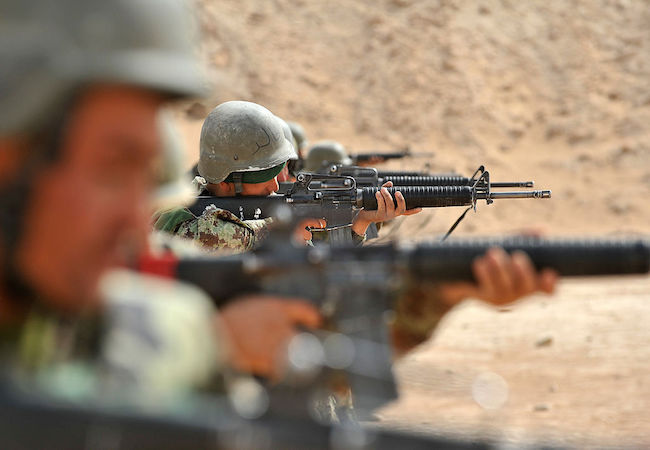
By Khawaja Dawood Tariq
Over the years, the U.S-Pakistan relations have always been contingent on the changing geostrategic developments. In the ’50s and ’60s, it was the cold war that brought two countries together. In the ’70s and ’80s, it was to lay the bear trap for the Soviets in Afghanistan and in post 9/11 it was to fight the war on terror. Many believe that it has been a mutually beneficial relationship; it has allowed Pakistan to modernize its military and security apparatus. However, the drawback of such a transactional relationship is that policymakers in Washington have come to access U.S-Pak relations as primarily Afghan centric. The Trump administration was adamant in its desire to conclude a deal with the Taliban that would bring an end to the longest armed conflict in American history. To achieve that, relentless pressure was exerted on Pakistan by the US throughout. Regardless of this, Pakistan’s commitment to regional peace and appropriate regional security strategy has ensured a conducive environment for a peace deal to be agreed upon between the U.S and the Taliban. However, with the increase in violence in Afghanistan and change in the White House the dynamics of the region have considerably changed. Many believe that incumbent President Joe Biden is a friend of Pakistan. He has announced the review of the Afghan peace deal inked by his predecessor. What does it mean for Pakistan, how would it impact U.S-Pak relations? What more can Pakistan do to accommodate both parties. These recent developments do put Pakistan in between a rock and a hard place.
A peace agreement was signed by the U.S and Taliban on February 29, 2020. The agreement was signed after an initial week-long period which required a reduction in violence. However, unfortunately, since the peace deal was signed the violence has only increased. Governors, law enforcement officials, judges, politicians, and civil society members have been targeted in succeeding months. An attack on Kabul University, targeted killing of female judges, and journalists in Kabul, bomb blasts targeting military and government installations across Afghanistan have taken place in the last couple of months. Troubled by this, President Ashraf Ghani and leading members of his administration have urged the Biden administration to revamp pressure on the Taliban and not rush to withdraw troops from Afghanistan.
Pakistan has called on all the parties to adhere to the spirit of the peace agreement. However, Pakistan is not the only regional power that exerts influence in Afghanistan. The absence of top leadership from the intra-Afghan talks in Doha has created doubts over the direction of intra-Afghan dialogue and the future of the Afghan peace process. In recent days while the intra-Afghan dialogue is ongoing in Doha, reportedly, the Taliban’s chief negotiator Mullah Abdul Ghani Baradar was in Tehran and Sher Mohammad Abbas Stanikzai, the Taliban’s political chief was leading a delegation to Russia.
The U.S-Taliban peace deal was a four-point agreement. The first point was preventing the use of Afghan soil by any group against the security of the U.S and its allies. The second was the mechanism and timeline for the withdrawal of U.S troops. As per the deal, the U.S troops are set to withdraw by the May of 2021 but the increase in violence has jeopardized the possibility of withdrawal by this time. National security adviser, Jake Sullivan recently said that “What we’re doing right now, is taking a hard look at the extent to which the Taliban are complying with those three conditions, and in that context, we make decisions about our force posture and our diplomatic strategy going forward,” Pentagon spokesman John Kirby told reporters “Without them meeting their commitments to renounce terrorism and to stop the violent attacks on the Afghan National Security Forces … it is very hard to see a specific way forward for the negotiated settlement, but we’re still committed to that,”. Even when the deal was signed, the Trump administration was criticized for hastily agreeing on a deal with the Taliban while conceding too much. The recent announcement by the Biden administration to review the deal can have dual implications. First, the Biden administration is trying to ramp up the pressure on the Taliban and Afghan National government to conclude the intra-Afghan dialogue before May 2021 (the deadline for withdrawal of the U.S’ forces). Second, the Biden administration wants to review the impact of the recent diplomatic outreach by the Taliban.
Now that the intra-Afghan peace process is not quite up to start, Pakistan’s role is again under scrutiny. Pakistan has been accused by many in Washington of playing a double game in Afghanistan but it is impossible to disconnect the level of threat Pakistan perceives from hostile elements using Afghan soil against Pakistan. The question is what more can Pakistan do to facilitate the Afghan peace process. Pakistan has to ensure how it protects its own interests as well. If the first point of the U.S and Taliban peace deal is to ensure that the Afghan soil won’t be used to target the U.S and its allies; how can the same rationale not be extended to Pakistan? The limit of Pakistan’s influence in Afghanistan and its national security concerns vis-à-vis India would create a very delicate situation for all parties concerned. The Biden administration needs to revisit the U.S-Pak relations with a broader regional context to allow Pakistan the tactical and strategic space to maneuver in Afghanistan.
Khawaja Dawood Tariq is a Senior Research Fellow at Strategic Vision Institute in Islamabad, Pakistan




